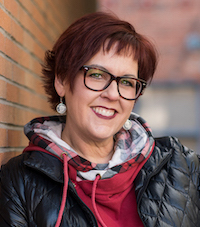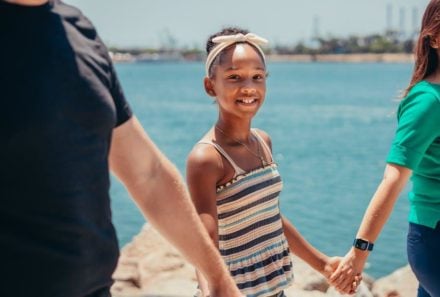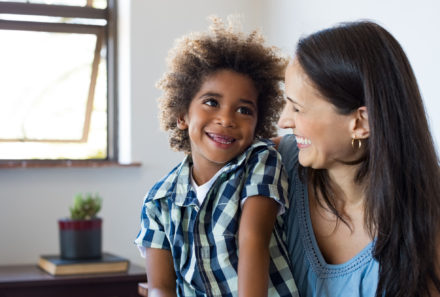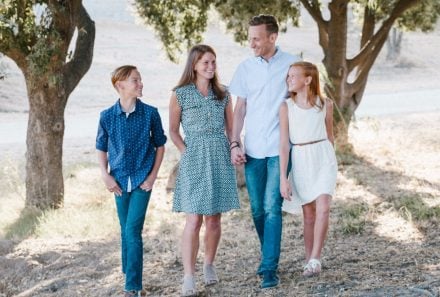Weaving a Lifeline for Trauma Parents from the Frayed Edges at the End of my Rope
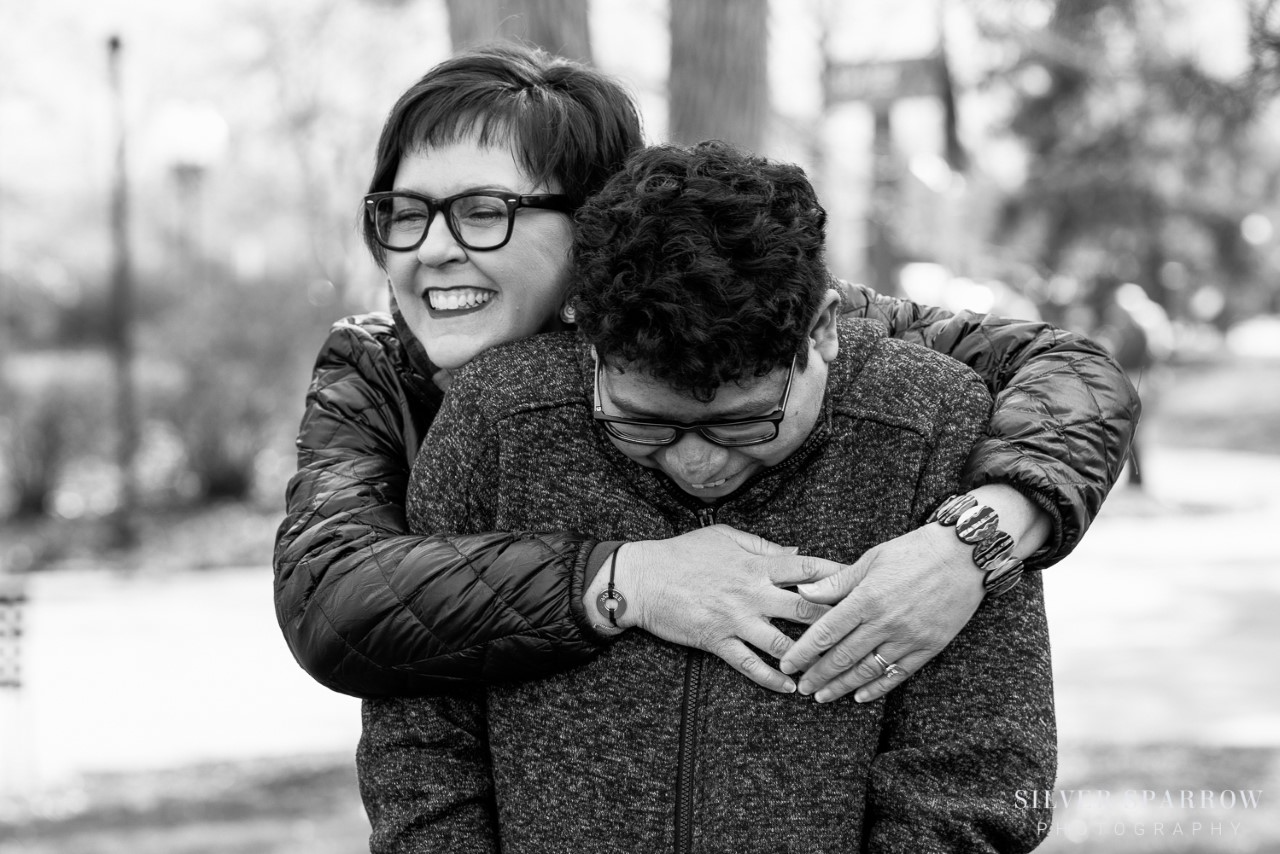
I was afraid of my child.
Beginning in the toddler years, we were walking on eggshells. Normally, when you tell a child “no” to something, they listen. They may argue or cry, but typically they listen and don’t do it again. When I said “no”, it sometimes led to a 4-hour meltdown (and I’m not exaggerating) featuring that blood-curdling scream that sounds like I’m torturing him. He’d throw things, he’d flail his arms and legs. If I held him on my lap, he’d head-butt me, causing a nosebleed. So we learned to choose our “no’s” carefully. And obviously, we were judged for that.
One time I was sound asleep in the middle of the night and felt a blow to the head. I peered over at my husband, thinking maybe he flopped his arm on me in his sleep, but he was peacefully snoring on his side of the bed. I turned the other way, and my 7-year-old son was glaring at me with the evil eye like one of those kids in a horror film. He informed me that he punched me because I took away his video games… NINE HOURS EARLIER.
Maybe I should have locked my door, but this is my baby. He was a little boy. And he wasn’t always violent. But by the age of 12 we were “encouraged” to find a different school, introduced to the juvenile justice system, and left a trail of broken lamps and electronics in our wake. We had holes in the walls and bruises on our bodies. And yet, when he wasn’t raging, he was a funny, loveable kid! But the bigger he got, the more I feared what could happen might someday kill me.
Now, if you’re reading this and thinking, “wow, why didn’t they get some therapy?”… we did. We went from one “expert” to another and ended up with an alphabet soup of diagnoses – ADD, ODD, ASD, SPD, etc. We were told one medication or another was going to be the magic solution. We attended parenting classes and discovered that EVERY technique worked on my first kid. None worked on this one. We tried play therapy, art therapy, equine camp, socialization groups, and more. I thought we were a lost cause.
And then one day, we stumbled upon the right solution. I call it the “magic triangle”… family intensive therapy, a therapeutic school, and a discipline system that identified missing skills rather than punishing for things he wasn’t able to do. All three branches working together and on the same page to provide this kid the healing his traumatized brain needed.
My boys were both adopted from Guatemala at the age of 6 months. While my first one had an ideal situation with both his birth mom and his foster family, my second was neglected before we got him. Once I learned the signs of neglect, we realized they were all there – along with a very uneasy feeling around his foster mom. But at the time, we didn’t know what to look for. “A good appetite” was actually code for “starving a lot of the time”. The lack of eye contact, aversion to touch, and lack of play we thought were personal preferences. We had no idea what trauma does to a growing brain or that we should even look for it.
Fast forward to now. The same kid is about to start his senior year. He is no longer violent, he has friends, and our whole family is connected. We are CLOSE now. My boys are best friends and we actually all enjoy hanging out together. I love these boys more than anything, and I’m so happy to have reached the other side.
On one of those desperate nights when he was in a fit of rage, I hid in my closet; lying on the floor praying to God, or the Universe, or whoever would listen that if I ever got to the other side of this parenting nightmare, I would make it my mission to help others. I didn’t know how, but I really meant it. And here I am!
This month, I launched Trauma Drama University – Proactive Strategies for Reactive Kids. It’s not therapy. It’s not for kids. It’s for PARENTS. Struggling parents who think they’re doing everything right and yet, it’s not working. Parents whose kids suffered trauma – which can be anything from adoption and a parent’s divorce to abuse and neglect. It could even be a separation from parents in the first year of life, due to medical issues, deployment, or prison. These traumas actually rewire the developing brain and stunt their emotional growth.
Now, I’m a lifelong learner. I could be a professional student if college was free and I’d collect degrees like most people collect stamps or coins or bad habits. I love to learn about things, so I researched the heck out of this for the past 17 years. I’m also a professor and went back to get my Masters in Adult Education after discovering I loved teaching grown-ups at two local colleges. So educating people is kind of my “superpower”. I’m also a “connector”… if I like my eye doctor (and I do!), I refer him to EVERYONE. If I know someone who can help you, I’ll hop right on social media or email and make an introduction. So the program I came up with at Trauma Drama University hits on my strengths.
When you enroll in TDU, you’ll start with our four-part course that touches on what trauma does to a growing brain (and why those parenting books aren’t working!), how to find the right mindset to parent kids like these, the reality of PTSD in trauma parents, and treatments and therapies that work on these kids. A new module is unveiled each week in your first month. But that’s only the first part.
Each month, we bring in an industry expert to teach you about important topics relating to kids with trauma. This month with the beginning of school, our “Trauma Tuesday” session will be with an educational advocate explaining the 504/IEP process for getting special accommodations in school. In the future, we have a psychologist explaining the trauma brain and how neurofeedback can be a good solution; a calm parenting coach teaching some innovative tips; and lots more meaty and important topics. There is also a monthly R&R session – either a self-care activity, a trauma book discussion, or a movie-watch party. Finally, we have a private discussion board where you can talk to other parents who are going through similar struggles. It’s the education, support, and resources you need to set you on the path to healing and connection and to get through this journey with your head held high.
We want to be your “village”. If you’re struggling with a kid that sounds a little like mine (and they don’t need to be quite as severe), then this is the place to find nonjudgmental parents who understand, with proactive strategies that actually work with these very reactive kids. Check us out at www.traumadramauniversity.com. Check out Gina’s book Love Never Quits: Surviving and Thriving After Infertility, Adoption, and Reactive Attachment Disorder.


